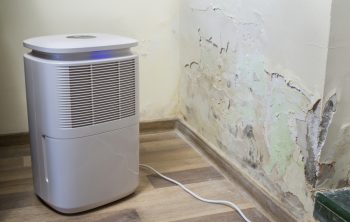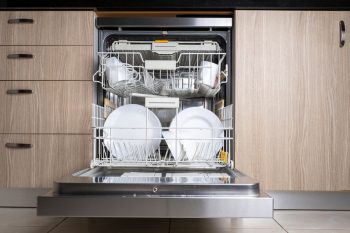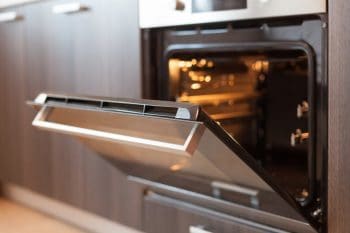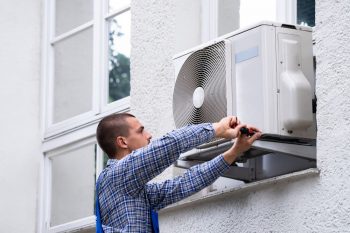
If you own a GE refrigerator, you may have noticed an unusual buzzing noise. This sound can be disconcerting, and you’re probably wondering what’s causing it. Is it a sign of a serious issue, or is it something you can easily fix? In this comprehensive guide, we’ll delve into the possible causes and solutions for a noisy GE refrigerator.
A loud buzzing noise from your GE refrigerator could be due to a faulty water inlet valve, an obstructed condenser fan motor, issues with the ice maker, a problem with the evaporator fan motor, or the refrigerator not being level. Each of these issues can be identified by the noise’s location and frequency. Some can be fixed by cleaning or leveling the appliance, while others may require component replacement. If the noise persists or the refrigerator isn’t cooling properly, seek professional help.
Common Causes of a Loud Buzzing Noise
1. Faulty Water Inlet Valve
A loud buzzing sound when the ice maker is filling could indicate a faulty water inlet valve. Over time, mineral deposits from water can clog the valve, causing it to buzz or hum when activated.
2. Obstructed Condenser Fan Motor
If the noise is coming from the back of the refrigerator, the condenser fan motor could be obstructed. The fan motor is responsible for cooling the condenser coils and if obstructed, it may produce a loud humming noise.
3. Ice Maker Issues
If you hear a buzzing sound every 10 to 15 minutes lasting about 5 to 10 seconds, the home water supply line to the icemaker may be shut off. To resolve this, check and ensure the water supply line is turned on to the icemaker.
4. Evaporator Fan Motor
A buzzing noise coming from the freezer compartment and sounding like a fan blade hitting something could be due to the evaporator fan motor. The evaporator fan is responsible for circulating cold air throughout the refrigerator.
5. Refrigerator Not Being Level
A noisy GE refrigerator can simply be the result of the appliance not being level. If the refrigerator isn’t level, it may vibrate or rattle against the floor or surrounding surfaces.
Troubleshooting a Noisy GE Refrigerator
1. Identify the Source of the Noise
First, determine where the noise is coming from: the back, bottom, or inside of the refrigerator. Different noises can indicate various issues with your fridge’s components.
2. Check for Loose Components
Inspect your refrigerator for any loose components, such as screws, cables, or fan blades, and secure any loose parts you find.
3. Clean Fans and Vents
If the noise is coming from a fan, clean the fans and vents using a can of compressed air or a lint-free cloth.
4. Inspect Hardware
Check for faulty components, such as the water inlet valve or evaporator fan motor, and replace any damaged hardware.
5. Maintain Your Refrigerator
Regular maintenance can help prevent issues with your GE refrigerator and extend its lifespan. Clean the condenser coils once or twice a year, replace the water filter every six months, and replace the air filter as recommended by the manufacturer.
When to Seek Professional Help
While some refrigerator noises can be easily fixed, others may require professional help. If the noise gets louder, the refrigerator is not cooling properly, the ice maker is not working, or there is excessive heat emanating from underneath the appliance, it’s time to consult a professional technician.
In conclusion, a buzzing noise from your GE refrigerator could be due to a variety of factors. Identifying the source of the noise and addressing the issue promptly can help keep your refrigerator running smoothly. If in doubt, always consult a professional.
Frequently Asked Questions
How often should I clean the condenser coils of my GE refrigerator?
You should clean the condenser coils of your GE refrigerator once or twice a year to ensure it operates efficiently.
Can I use any cloth to clean the fans and vents of my refrigerator?
No, it’s recommended to use a lint-free cloth to clean the fans and vents of your refrigerator. This prevents any lint from obstructing the fans or vents.
What kind of noise indicates a problem with the water inlet valve?
A loud buzzing sound when the ice maker is filling could indicate a problem with the water inlet valve.
How can I tell if the noise is coming from the evaporator fan motor?
If the noise is coming from the freezer compartment and sounds like a fan blade hitting something, it could be due to the evaporator fan motor.
What does it mean if my refrigerator is making a noise every 10 to 15 minutes?
If you hear a buzzing sound every 10 to 15 minutes lasting about 5 to 10 seconds, the home water supply line to the icemaker may be shut off. Check and ensure the water supply line is turned on to the icemaker.












